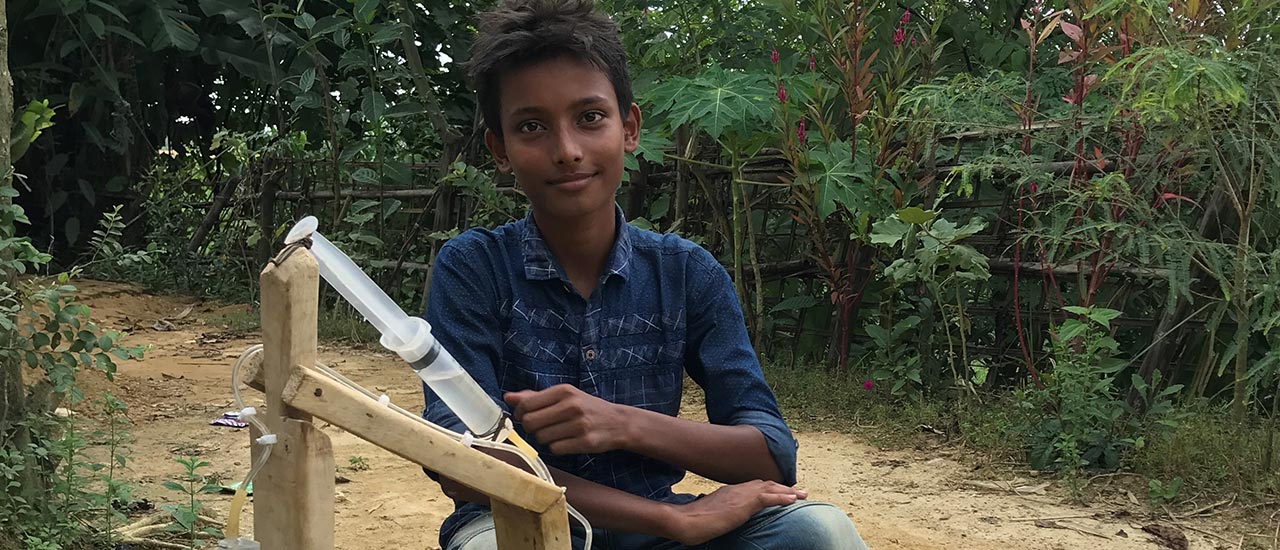
Rohingya Boy Genius
‘When I start making one thing, the idea for another object enters my head.’
- Mohammed Toyub, 14-years-old
Fourteen-year-old Mohammed Toyub did not receive a proper education in Myanmar since he had to quit school and assist his father with business. A collector of many items, Toyub spent his time gathering wood, betel leaves, seasonal seeds, fruits, paddy and rice to sell it in Myanmar. After studying till class three, he fled Myanmar and escaped to Bangladesh with his family.
At the camp, Toyub used to attend a school at the UNICEF learning centre but academics are on a break due to COVID. Toyub now spends his time learning Arabic and helps his father by at his shop in the camp. A teacher from his community visits his house to tutor him in Burmese and English for two hours every day.’
Two weeks into the lockdown, when all of his classes and events were paused, Toyub began to recall the first time he saw an aáti gari, or excavator, in Myanmar. Then he thought of all the excavators he saw in movies and television shows and imagined their function and capacity.
In Rohingya, aáti gari translates to ‘elephant car,’ as the curved shape of the excavator bucket resembles a pair of elephant tusks.
Soon he began collecting materials such as nail, syringe, pipe, tin and wood to build himself a toy excavator.
During test runs when the toy aáti gari, did not turn left or right, Toyub went in search of a real excavator in the camp. After observing it for fifteen minutes, he realized he needed to put a bearing in the centre of the machine to allow it to move in different directions.
Toyub, who has built many toys such as cars from bamboo and planes from foam, is just one of many children making toys and other play things from waste materials in the Rohingya camps. Discarded plastic syringes, pieces of rubber sandals, old clothing, mud, reclaimed wood, and plastic and paper packaging all become elements used to create objects of play. South Sudanese children in the Bidibidi refugee camp in Uganda make similar toys, and, across the Cox's Bazar camps, Rohingya adults are found whipping up makeshift fans, tools, electric lights and other contraptions from whatever elements they find at hand. (In the subcontinent, this is do-it-yourself approach is often called jugaad, sometimes translated frugal innovation.)
Such handmade creations show imagination and resilience, and are testament to human ingenuity.
Toyub has built many toys such as cars from bamboo and planes from foam but other children play with them when he is not around, so the toys get ruined. Toyub dreams of making many other machines such as a helicopter, ship, aeroplane and dumper. When he grows up, Toyub says he wants to be both a teacher and engineer so he can build different machines to help advance civilization.
* * *
Written by Tazrian Rahman, copywriter and editor of the Rohingya Cultural Memory Centre.
